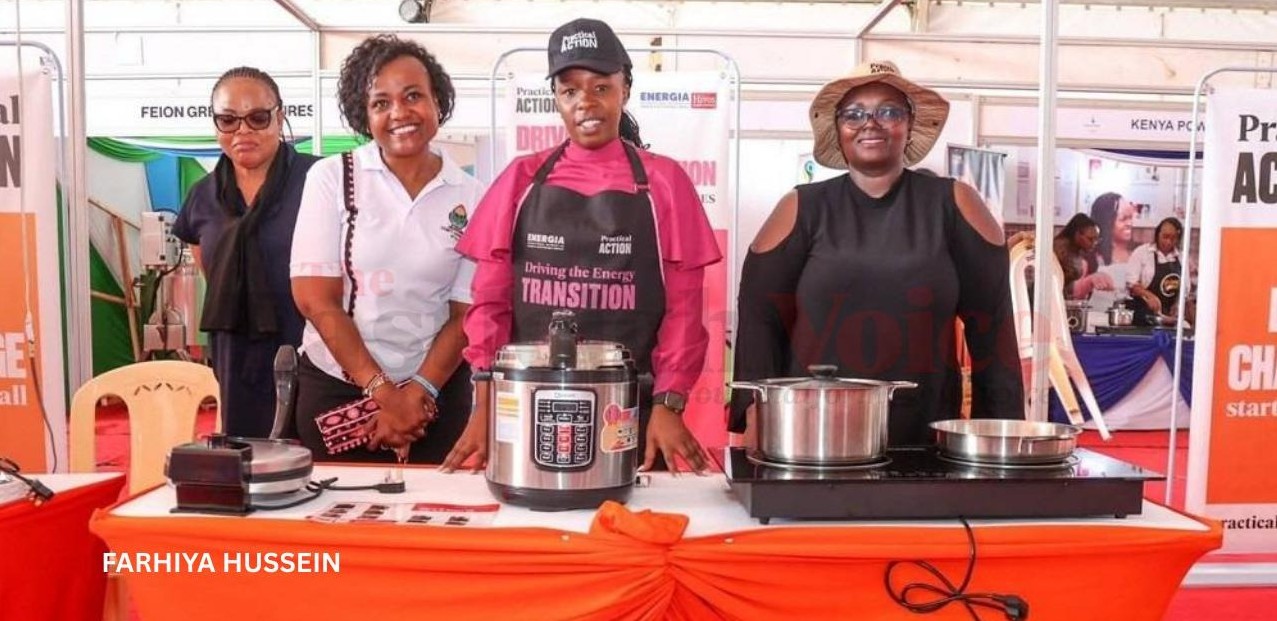Biogas and clean stoves transform cooking in Kilifi, reducing smoke-related illnesses

County leaders are urging households—especially women, who bear the brunt of traditional cooking methods—to embrace the change.
For generations in Kilifi County, families have relied on firewood and charcoal as their primary means of cooking. While these traditional methods have long been part of daily life, they have also taken a heavy toll—filling kitchens with thick smoke, causing coughing and eye irritation, and damaging the environment.
Today, however, a quiet revolution is underway. Across villages, households are embracing clean cooking solutions that are safer, healthier, and more sustainable.
More To Read
- Cooking smoke linked to 26,000 deaths in Kenya every year - report
- AfDB: Kenyan women left behind in green energy transition amid Sh96 billion financing gap
- Construction dust, delayed care and deadly myths: Pneumonia’s silent assault on Kenyan men
- Anti-inflammatory diet cuts death risk in stage 3 colon cancer by 63pc, new study finds
- Biogas potential untapped despite promise for green drive, rural development - study
- The public must obtain permits before transporting forest products, KFS warns
At her modest home in Kilifi, Jane Kisambo recalled the hardships of using firewood.
“Every day you had to look for dry firewood to cook with. When cooking, the smoke made me cough, and tears would stream from my eyes,” she said.
Medical experts warn of the risks.
Doctor Juliet Kemuma explained, “This smoke is not good for health. It causes a condition called chronic obstructive pulmonary disease (COPD). The particles from firewood smoke remain in the lungs and can even lead to cancer. Families should use modern ways that release smoke outside the house or, better still, abandon firewood altogether. Fortunately, change is happening, and many are now using clean cooking solutions.”
 Kilifi Governor Gideon Mung’aro and First Lady Rachael Ruto during last month’s Kilifi Clean Cooking Week. (Photo: Farhiya Hussein)
Kilifi Governor Gideon Mung’aro and First Lady Rachael Ruto during last month’s Kilifi Clean Cooking Week. (Photo: Farhiya Hussein)
For some residents, the switch has been life-changing. Local artisan Charles Katana has adopted biogas, which he constructs using cement.
“I dig a proper pit, plaster it, and build a gas cylinder structure from cement,” he explained.
He added, “It lasts longer, unlike buying gas every time. With biogas, you only refill and stir, then continue cooking. I have seen many benefits because, unlike firewood, which you constantly need to add, with biogas the food cooks until it’s ready, and with bigger burners the food tastes even better.”
Margaret Mwaro, another resident, shared a similar experience. “I decided to use biogas. By using animal dung, it is like charging the system. It doesn’t need to be done every day, and I no longer have to buy gas. It has helped me so much that I have forgotten about firewood altogether.”
County’s commitment
The shift is also being driven by policy. The Director General of Energy in Kilifi, Wilfred Baya, highlighted the county’s commitment.
“As a county government, we have developed our County Energy Plan 2024–2034 and our Clean Cooking Policy 2025. These plans are aligned with the national government’s goals of achieving universal clean cooking by the year 2030.”
County leaders are urging households—especially women, who bear the brunt of traditional cooking methods—to embrace the change.
County Lands and Energy Executive Jane Kamto explained, “The old methods of using firewood, charcoal and palm leaves exposed us to greater risks, especially women, who are regarded as the best cooks in our families. I want us to embrace these new methods of cooking, to protect ourselves from chest infections, lung diseases, skin conditions, and other illnesses caused by smoke.”
For residents like Gladys Charo, the difference has been profound.
“The smoke would enter my eyes and become itchy,” she recalled. Today, her kitchen is smoke-free, reflecting the broader transformation taking place in Kilifi.
She noted that the move to clean cooking is about more than convenience.
“It symbolises a move towards healthier families, empowered women, and a cleaner environment. With biogas, improved stoves, and county-led policies, Kilifi is slowly trading smoke-filled kitchens for a greener and more hopeful future.”
Top Stories Today












































